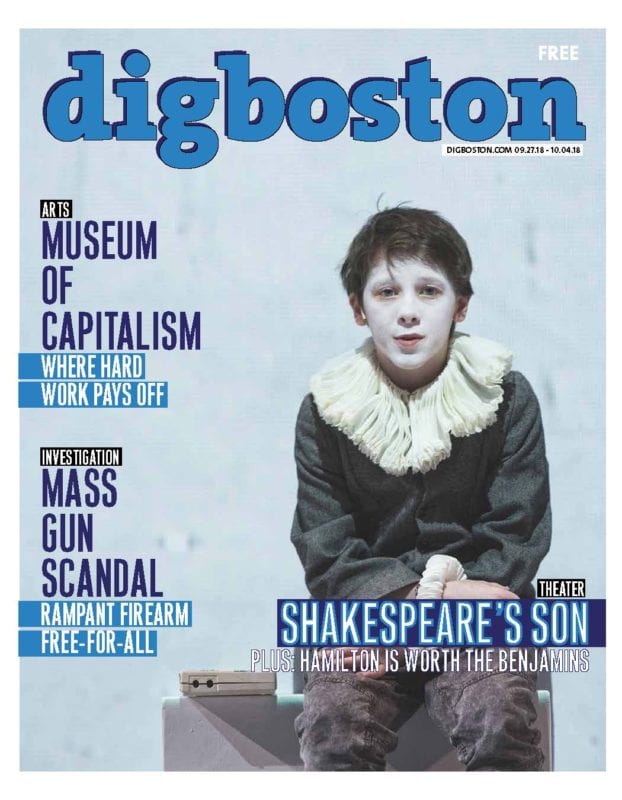
To support independent journalism and beat back marketing propaganda, for starters
September 26, 2018
BY JASON PRAMAS @JASONPRAMAS
Many people have taken to loudly bemoaning the supposedly sudden arrival of “fake news” since the 2016 presidential election… while becoming belatedly aware of the accompanying slow decline of print newspapers that are—whatever else one might say about them—the beating heart of American journalism.
Every other kind of news media owes its existence to these “dead tree” publications. Traditional radio and TV news outlets, and every form of digital news operation on the internet, are all possible because print newspapers—most commercial, some nonprofit—have been fielding thousands of reporters in hundreds of cities for decades. Doing the kind of deep ground-level reporting that makes all the hot (and more often shallow) takes on other media possible.
Advertising has been the main source of income for commercial print newspapers since the mid-19th century, and the advent of web-based online advertising blew a vast hole in that revenue stream. Precipitating, in no small part, the downward spiral in their fortunes over the last quarter century.
One result of newspapers shrinking and all too often ceasing to exist has been what one might call the rise of the marketers. With fewer and fewer full-time reporters doing their jobs, marketing firms have leapt to the fore. Offering a flood of “free” content to every conceivable type of news operation. Ceaselessly expanding the empire of the original fake news in the process. A fake news that, make no mistake, has existed for as long as there has been news.
Because rich and powerful institutions have always hired marketers or their equivalents. And marketers—in thrall to whichever institution hires them—are paid to lie to the public. And are therefore the polar opposites of (most) journalists. Especially journalists at an independent metro newsweekly like DigBoston.
As a journalist-owned, journalist-run newspaper, we send reporters out into the communities we cover every week in search of information that’s as close to whatever truth may be happening as it can be. We then do our damnedest to faithfully report what we observe to our audience.
So, we can say with certainty that no human organization is good all of the time. Least of all the big corporations that run our society. But big corporations are the very institutions that spend the most money on paying marketers to spew propaganda at every level of news media.
And increasingly, understaffed and underfunded news outlets take even this worst of free marketing copy—this disinformation, this fake news—and run it. Day in and day out. The public, for their part, can be forgiven for having trouble discerning reasonably honest reporting from unreasonably dishonest marketing copy. There’s nothing new about that either. Some people are critical about any news they encounter. Some are not. But marketing has gotten so sophisticated and so pernicious that even the wary have trouble telling the difference between journalism and propaganda.
At DigBoston, our audience doesn’t have to worry about that quandary. We exist to report the news in the public interest. In our own way, and with our own unique broadly left-leaning voice, to be sure. But we take our job very seriously, and we work very hard week in and week out to do it to the best of our collective ability. For 20 years and counting.
Given that, if you know nothing else about us, know this: We do not run the propaganda that paid marketers fill our email inboxes with 24/7. Like this morning’s stupid, stupid example entitled “Wondering about a sponsored post.” That is, “wondering if you all are brainless enough to run this marketing copy for free and pretend it’s a real article by an independent journalist.” To which my colleague Chris Faraone gave our standard mocking reply, “$2,000 a post”—a price we know no marketer will ever pay.
However, we’re a free newspaper. As such, even more than those bigs that have a number of different ways to make money, we rely almost completely on advertising to keep publishing.
We offer advertisers a lot for their money, even in today’s viciously competitive media market. Our ads are obviously cheaper than larger publications. More importantly, though, they reach people who read, who support music and the arts, who are tastemakers, and who… patronize our advertisers.
Because of that fact, our existing advertisers love us. And we love them back.
But we need more of them. We need to grow our news operation if we’re going to give the many communities in Boston and environs that we cover the constant attention they deserve. To do that we need to be able to pay more full-time reporters, and part-time ones, too. To do that, we need a bigger business staff and more salespeople.
All of which is only possible if more institutions that could advertise with us—all the local businesses and charities who serve the communities we cover—step up and do so.
Rather than spend advertising dollars on marketers who straight-out lie to people and harm our struggling democracy rather than help it.
Folks interested in advertising with DigBoston can email our sales staff at sales@digboston.org.
Jason Pramas is executive editor and associate publisher of DigBoston.